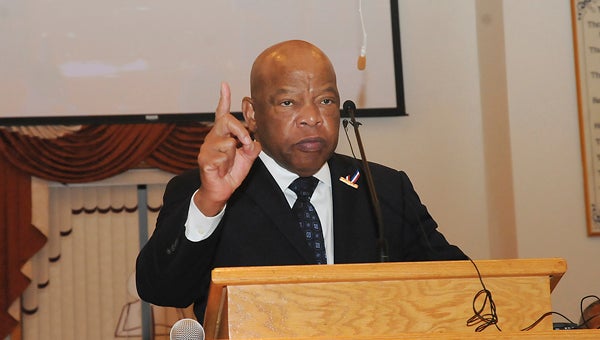Ballot to feature 6 state amendments, 1 local
Published 1:47 pm Friday, October 23, 2020
|
Getting your Trinity Audio player ready...
|
The November election, which will have voters across the nation weighing in on a presidential contest and various national, state and local seats, is right around the corner and Alabama voters will be voting on six statewide constitutional amendments.
For Dallas County voters, a local amendment will also have to be decided on.
Statewide Amendment 1, sponsored by Alabama Senate Pro Tem Del Marsh, R-Anniston, would alter language in the state’s constitution, which currently says that “every” U.S. citizen who meets certain requirements will be allowed to vote, to state that “only” U.S. citizens who meet certain requirements will be allowed to vote.
If a majority of voters vote against the amendment, the state constitution will continue to grant the right to vote to “every” citizen who meets the requirements; if a majority of voters in favor of the amendment, the constitution will be altered to grant the right to vote to “only” those citizens who meet the requirements.
For Statewide Amendment 2, sponsor Alabama Sen. Arthur Orr, R-Decatur, worked with Alabama Rep. Prince Chestnut, D-Selma, who noted that he worked with Clay Hornsby of the Alabama Law Institute to craft the legislation, which represents “months of work with attorneys and judges” and the “first major revision to the Judicial Article of the Alabama Constitution since the 1970s.”
Specifically, Amendment 2 would allow county district courts to not hold city court in a city with a population of less than 1,000; allow the Alabama Supreme Court, rather than the Chief Justice, to appoint the Administrative Director of Courts; increases from nine to 11 the total membership of the Judicial Inquiry Commission, the body tasked with evaluating ethics complaints against judges, and determines who appoints each member; allows the governor, rather than the lieutenant governor, to appoint a member to the Court of the Judiciary, which hears complaints filed by the Judicial Inquiry Commission; prevents judges from being automatically disqualified from holding office due to a complaint being filed with the Judicial Inquiry Commission; and provides that a judge can only be removed from office by the Court of the Judiciary.
Statewide Amendment 3, sponsored by Alabama Rep. David Faulkner, R-Hoover, changes the initial term of a judge appointed to fill a vacancy due to death, resignation, retirement of removal – currently, a replacement judge’s tenure runs until the first Monday after the second Tuesday in January following a general election held after the person has completed one year in office or the remainder of the original judge’s term; under the proposed amendment, a judge would serve until the first Monday after the second Tuesday in January following a general election held after the judge has completed two years in office.
Statewide Amendment 4, sponsored by Alabama Sen. Merika Coleman, D-Birmingham, would allow for the state constitution to be reworked to remove racist language, remove language that is related or no longer applicable, combine language related to economic development and combine language related to the same county.
If approved, the amendment would allow for the Alabama Legislature to make the aforementioned changes to the state’s constitution during the 2022 session – even if the reworked version is approved, it will not become law until it is approved by voters.
If the measure fails, the constitution will remain in its current form.
Statewide Amendments 5 and 6 pertain specifically to Franklin and Lauderdale counties, respectively, and would allow for special “Stand Your Ground” laws, which allow a person to legally use physical force against another person in certain circumstances, to apply at churches in those counties.
Locally, Dallas County voters will weigh in on another amendment proposed by Chestnut, which he said “establishes a process by which the local bar and citizens have a say in determining who will be selected as a replacement should a district judge vacancy occur.”
For his part, Chestnut is hopeful that local voters will approve the two amendments he contributed to, Statewide Amendment 2 and the local Dallas County amendment.



